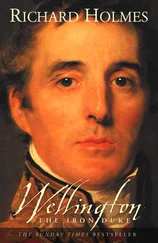Any historian surveying the next three years must account for the fact that the nations which applauded the defeat of Monmouth and Argyll in 1685 offered remarkably little support for James II in 1688. For Churchill’s biographers the task is even more specific: what made a man who acknowledged himself to owe everything to James, and who had helped keep him on the throne in 1685, betray him in his hour of need? We have the usual clash of polemics. James II’s many critics see him as a monster bent on imposing Roman Catholicism on his three kingdoms and obliterating those legal defences which stood in his way. In contrast, the Jacobite Life of James II , based partly on his own memoirs, maintained that James was a benevolent and paternalistic figure who
had given all the marks of love, care and tenderness of his subjects, that could be expected from a true father of his people: he had … encouraged and increased their trade, preserved them from taxes, supported their credit, [and] made them a rich, happy and more powerful people than they had ever appeared in the world. 82
It is perhaps easiest to see 1685–88 as a sequence of interlinked royal miscalculations, in which maladroitness and bad luck loomed larger than malice or cruelty; and though James won most of the individual legal battles he lost the war. The Bloody Assizes had the effect (not wholly unlike the Dublin executions of 1916) of alarming many moderate men who had never wished the rebels well but did not relish the severities meted out to them. James’s own overt Roman Catholicism, the arrival in London of a papal nuncio and the apparent influence of James’s Jesuit confessor Father Petre created tension in themselves. They were, though, made far more disturbing to Protestants by the fact that in 1685 Louis XIV revoked the Edict of Nantes, which had given religious toleration to his Protestant subjects, and embarked upon a policy of forced conversion which drove tens of thousands of Huguenots into exile with dreadful stories to tell.
John Evelyn was shocked by what he heard.
The French persecution of the Protestants raging with the utmost barbarity, exceeded even what the very heathens used; innumerable persons of the greatest birth and riches leaving all their earthly substance and barely escaping with their lives, dispersed through all the countries of Europe. The French tyrant abrogated the Edict of Nantes … on a sudden demolishing all their churches, banishing, imprisoning and sending to the galleys all the ministers; plundering all the common people, and exposing them to all sorts of barbarous usages by soldiers sent to ruin and prey upon them; taking away their children; forcing people to mass, and then executing them as relapsers … 83
In the spring of 1686 English congregations were asked to contribute to a fund for the exiles. This ‘was long expected, and was at last with difficulty procured to be published, the interest of the French ambassador obstructing it’. The government ordered a book detailing the outrages inflicted on the Huguenots to be burnt by the common hangman, but even Evelyn, a committed royalist, thought that this was ‘no refutation of any facts therein’ but simply showed the French ambassador’s ‘great indignation at the pious and truly generous charity of all the nation’. 84
Between 50,000 and 80,000 Huguenots arrived in England, where they were generally welcomed as fellow Protestants, even by the constrictive guilds of the City of London, for the skills they brought. The tales they told confirmed the worst English fears of an absolute monarchy with the stink of incense in its nostrils. Martha Guiscard of Fleet Street ‘came out of France, because Jean Guiscard, her father, was burnt at Nérac, accused of having irreverently received the host’. A wealthy gentleman who had to ‘abandon a great estate [was] condemned to be hanged: and his house demolished, and his woods destroyed’. 85 Gilbert Burnet saw all this as ‘a real argument against the cruel and persecuting spirit of popery, wherever it prevailed … the French persecution came very seasonably to awaken the nation’. 86 Another contemporary observer thought that: ‘The whole of Europe … is inundated with the enemies of Louis XIV since the expulsion of the Huguenots,’ and even Marshal Vauban lamented that France’s loss included ‘sixty millions of money, nine thousand sailors, twelve thousand tried soldiers, six hundred officers, and its most flourishing manufacturers’. 87
English concern at the persecution of the Huguenots had two specific aspects. First, it was carried out without regard to class or wealth: indeed, it was the threat to ‘their property, rights or privileges’ that persuaded many Huguenot noblemen to give up their religion. To nervous Protestant gentlemen across the Channel, the process posed a revolutionary threat to the established social as well as religious order. Second, the regular army was the chosen instrument of terror. Dragoons were often quartered on Huguenot villages with licence to behave abominably, giving the process the name of the dragonnades and founding the verb ‘to dragoon’ in the English language. Armed resistance was crushed remorselessly: the marquis de Louvois told a military commander to ‘cause such destruction in the area’ that the example would teach other Huguenots ‘how dangerous it is to rise against the King’. 88
Just as the abused often go on to be abusers, Huguenot exiles were not slow to take vengeance on those they believed responsible for their plight. At the Boyne in 1690 the Duke of Schomberg, himself a Huguenot, and a marshal of France before his exile, shouted to a shaky Huguenot regiment: ‘ Allons, messieurs, voilà vos persecuteurs ’ – ‘Come, gentlemen, there are your persecutors’ – and it immediately rallied. Conversely, some of the Wild Geese, Irish soldiers who left to serve in France after the collapse of the Jacobite cause in Ireland, behaved just as badly to French Protestants as English Protestants had to them. James’s illegitimate son the Duke of Berwick played a prominent part in suppressing a Protestant insurrection in Languedoc, and assures us that he had a brisk way with prisoners: ‘Revarelle and Catinat, who had been grenadiers in the troop, were burnt alive, on account of the horrid sacrileges they had been guilty of. Villar and Jonquet were broken on the wheel …’ 89
James quickly dissolved Parliament. He then proceeded to use the royal prerogative to dispense Roman Catholics from the Test Act, with a packed bench of judges finding in his favour in the collusive test case of Godden v. Hales in 1686. * He broke the Anglican monopoly of education by enabling Oxford fellows who became Catholics to retain their posts, and then imposed a Catholic president on Magdalen, the richest of Oxford’s colleges. County lieutenancies and magistrates’ benches were disproportionately reinforced by Catholics, and City livery companies and town councils across England saw the government’s opponents ejected. When the Duke of Somerset refused to conduct the public ceremonial for the reception of the papal nuncio on the ground that it was illegal, James replied: ‘I am above the law.’ ‘Your Majesty is so,’ replied the duke, ‘but I am not.’ He was dismissed from all his offices. Although the process worked almost as much to the advantage of Dissenters as it did to that of Catholics, it affronted Tory Anglicans in England and Protestants of the established Church in both Scotland and Ireland. 90 James was alienating the very people who had backed his brother.
In May 1688 James found himself in a direct confrontation with Archbishop Sancroft and six bishops who refused to have an Indulgence, suspending the Test Act and allowing public Catholic worship, read from every pulpit. Tellingly, they would have been joined by Peter Mews, once a captain of royalist horse and a Sedgemoor veteran, had he been well enough to attend the crucial meeting. The bishops were arrested for seditious libel, and when they refused to give bail, arguing that, as peers, they did not need to do so, they were sent to the Tower. It gave the worst possible impression, and even the soldiers on guard there shouted ‘God bless the bishops.’ At their trial they argued that the Indulgence violated the law, which could only be changed by Parliament, and were acquitted. That night there were bonfires and fireworks across London, and even a number of symbolic pope-burnings. It was a substantial public rebuff for James.
Читать дальше












